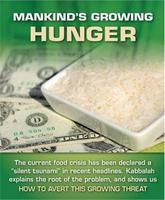
Global Warming—So What!?
Article in Kabbalah Today Issue 15
With the abundant information available to the mass public today, everyone knows about global warming and climate change. But as it turns out, knowing and caring do not always go hand in hand. Read the Full Article >>>
The more we know about global warming and the threats it poses—the less we seem to care! A recent survey of 1100 Americans, conducted by scientists from the Texas A&M University, showed that “The more informed one is about global warming, the less one feels personally responsible for this problem and the less one is concerned for global warming” (Risk Analysis, Vol.28, Issue 1, Feb 08). In total contradiction to what we would expect, research shows that the more actively the media publicizes the problem, and the more informed we are, the less concerned about it we become!
Kabbalah – The Antidote to Indifference
Perhaps our indifference can be attributed to the fact that no one has been able to offer any viable solutions for the impending disaster, or maybe it’s because we feel too overwhelmed by the overabundance of disturbing facts. Hence we choose to simply push the problem aside, for the time being. But clearly we cannot ignore it when it begins affecting us personally—for example, when you happen to be that person in New Orleans whose entire family is wiped out by Hurricane Katrina.
Because of the global nature of the problem, any one of us can be next—so why don’t we care?!
Kabbalah explains it very simply: What’s preventing us from thinking soberly and effectively about the problem is our cunning, narrow egoistic perception. It blinds us from seeing the broader perspective, from being able to evaluate the full gravity of the situation. Moreover, our ego blinds us to the fact that we are causing this to ourselves, and are therefore able to prevent it! Read the Full Article >>>
Click Here to Sign Up for a Free Kabbalah Introductory Course – Starts Soon!



